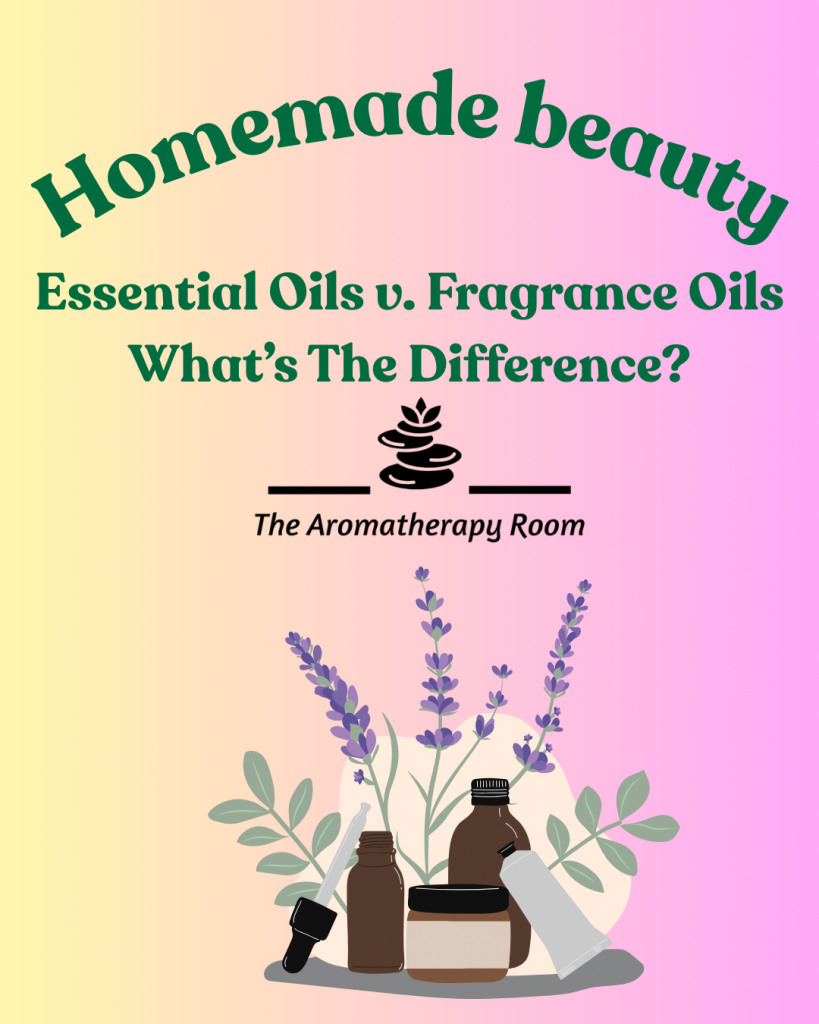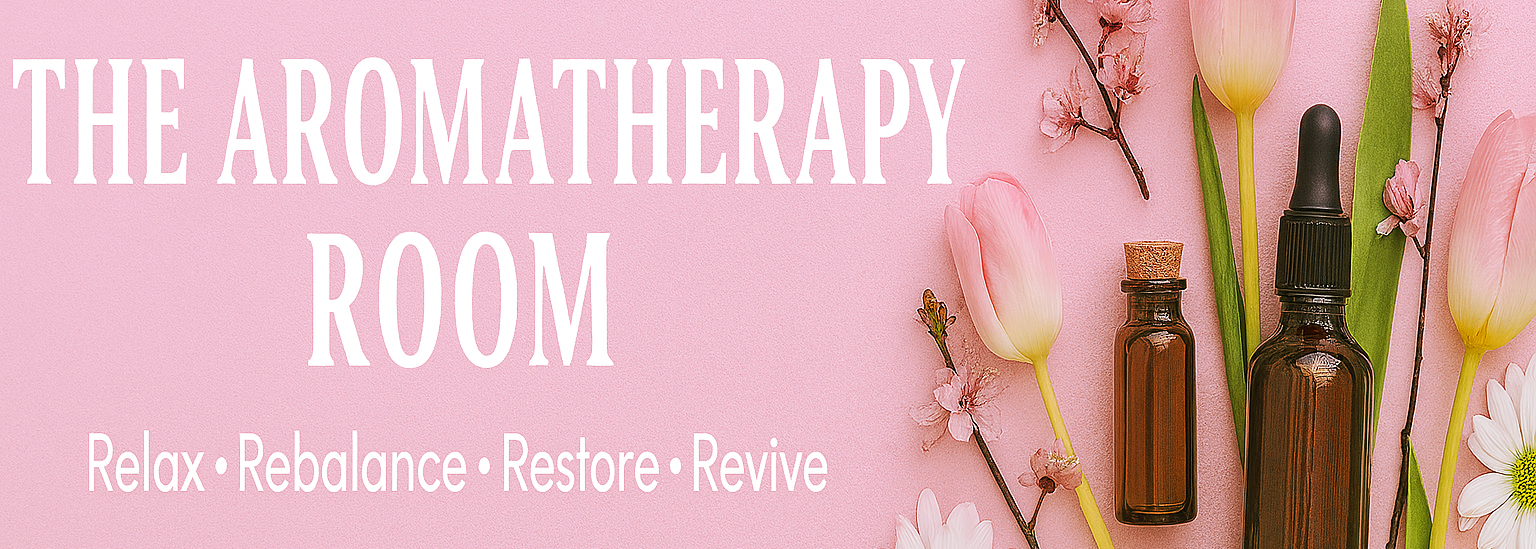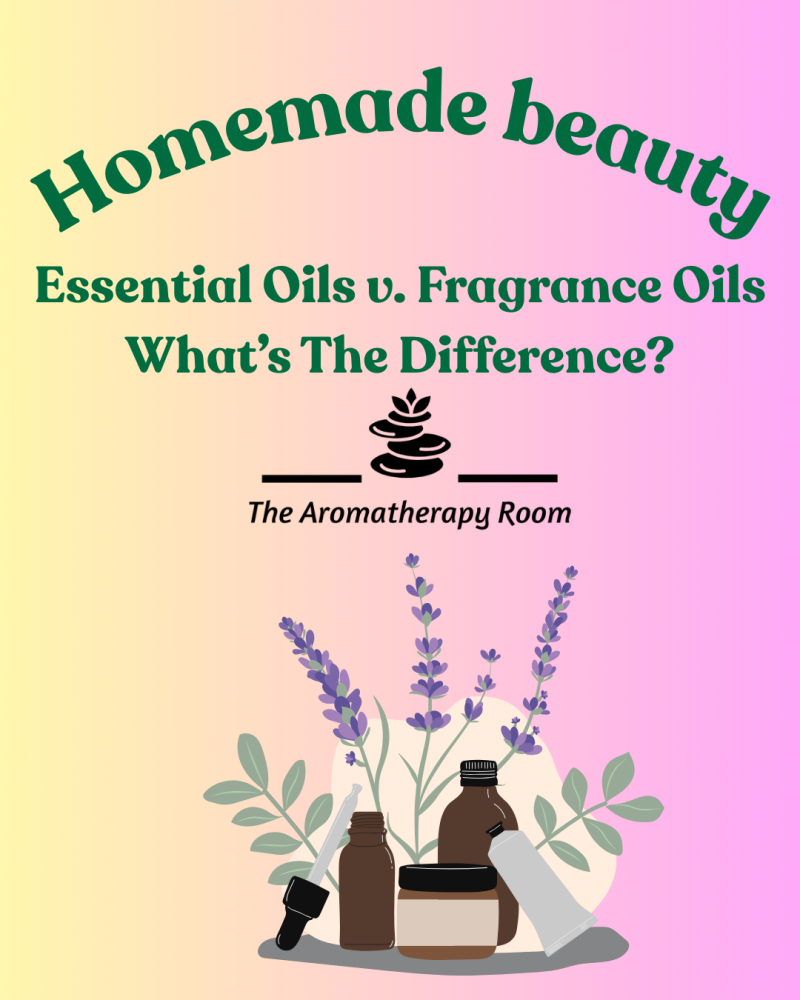
Essential Oils vs. Fragrance Oils: What’s Best for Your Homemade Products?
Your making your own beauty products to use at home and you are choosing a fragrance, do you choose essential oils or fragrance oils? Do you know what the difference is (or how to tell the difference)? When it comes to choosing how to scent your products, things can get a little confusing. The two most common options—essential oils and fragrance oils—each bring something unique to the table.
So, which one is right for you? Let’s break down the benefits and differences of essential oils vs. fragrance oils in DIY products.
Essential Oils: Nature in a Bottle
What are they?
Essential oils are concentrated plant extracts obtained through methods like steam distillation or cold pressing. They come from flowers, leaves, bark, or roots—basically, they’re nature’s aromatic compounds in their purest form.
Benefits of essential oils in beauty products:
- Natural origin: For those wanting a clean, green ingredient list, essential oils are a natural win.
- Therapeutic properties: Essential oils have benefits beyond scent and can be used to support your body and mind. —think calming lavender, antibacterial tea tree, or invigorating peppermint.
- Mind-body connection: They’re a staple in aromatherapy, helping with everything from anxiety relief to focus and better sleep.
Considerations:
- Cost: Essential oils are often more expensive because they require a large volume of plant material to produce.
- Skin sensitivity: Some oils can be irritating if not diluted properly or used in safe doses—always research safe usage and do patch tests.
- Scent longevity: Because they’re natural, often the scent can fade more quickly than synthetic options.
Fragrance Oils: Endless Scent Possibilities
What are they?
Fragrance oils are synthetic or partially synthetic compounds designed to mimic natural scents or create new ones entirely. Some are “nature-identical,” while others are purely imaginative (hello, “Ocean Breeze” and “Vanilla Sugar Cookie”).
Benefits of fragrance oils in beauty products:
- Consistency: The scent stays stable and strong, even through processing and shelf life.
- Affordability: Generally more budget-friendly than essential oils.
- Creative freedom: You can replicate just about any scent imaginable, including ones you can’t extract naturally (like watermelon or rain).
Considerations:
- Synthetic nature: Not everyone is comfortable with lab-created ingredients, especially in “natural” skincare.
- Lack of therapeutic benefit: Fragrance oils don’t typically offer the same aromatherapy or skin-healing properties.
- Allergens: Some people with sensitive skin or fragrance allergies may react poorly, so always test carefully.
So, Which Should You Use?
Choose essential oils if you want:
- A more holistic, therapeutic approach
- All-natural ingredients
- Subtle, plant-based scents
Choose fragrance oils if you want:
- Stronger, longer-lasting scent
- A broader range of fragrances
- A more budget-friendly option
There’s no one-size-fits-all answer—it all depends on your goals, preferences, and target audience. Whether you’re going all-natural or playing with fun, complex scent blends, both essential and fragrance oils have their place in DIY beauty. However, make sure you know the difference. Fragrance oils will be labelled as such, and essential oils will have the botanical name included e.g Bitter Orange, Citrus aurantium.
Each one Whichever you choose, always prioritise quality, buy from a reputable company, patch test new blends, and have fun crafting something uniquely you.


Leave a Reply